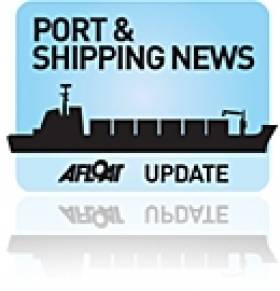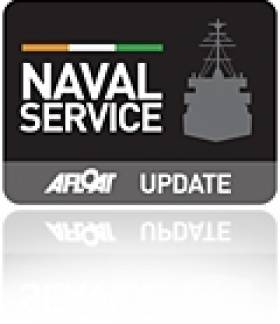Displaying items by tag: Ship repairs
Containership Under Overnight Repairs in Bantry Bay
#ShipRepairs – Atlantic Companion, a massive containership which had experienced engine problems according to The Irish Examiner, was understood to have undergone continued repairs last night in the shelter of Bantry Bay.
The 57,000 tonnes vessel lost engine power and drifting for almost 12 hours off Cork on Tuesday.
The Swedish-flagged vessel was en-route from Liverpool to Halifax when it experienced problems with one of the six cylinders on its main engine.
However Gerry Callanan of ACL, the container shipping company which owns the vessel, told customers who have containers on board that he expects the vessel to resume its trans-Atlantic voyage at some stage tomorrow (this Thursday) morning.
For more on the story, click HERE.
LE Ciara Returns to Sea after Hull Repairs
#NAVAL SERVICE- The Naval Service patrol ship LE Ciara (P42) has been cleared to return to sea, following repairs to a hole in its hull, the Irish Times reports.
The high-speed coastal patrol vessel (CPV) is the latest in a series of vessels in the fleet which have required substantial repair due to a combination of age and rough Atlantic conditions.
The oldest ships of the eight-strong fleet, the sisters LE Emer , Aoife and Aisling , have all suffered plate erosion due mainly to age. The service is due to received two new ships at €50 million each, which will be commissioned in 2014 and 2015, under a deal with British shipbuilder Babcock Marine.






























































